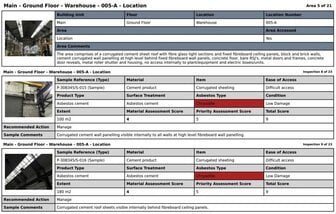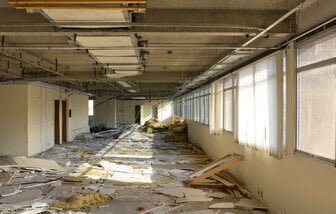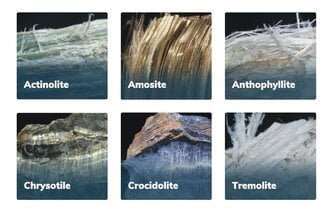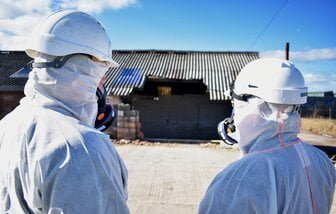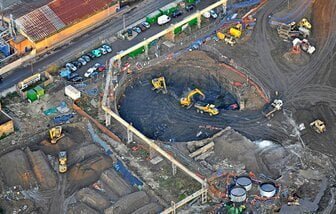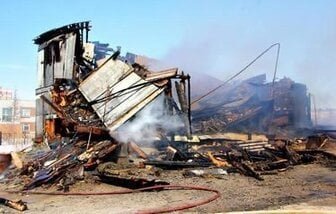Understanding Asbestos Reports: Their Uses, Importance, and Costs in the UK
Asbestos reports are essential for identifying and managing asbestos-containing materials (ACMs) in buildings. They ensure compliance with UK regulations, protect public health, and guide property management decisions. Understand the types of asbestos surveys, their importance during property transactions, refurbishments, and demolitions, and learn about the cost factors and how to choose a qualified asbestos surveyor. Investing in asbestos reports safeguards health, ensures legal compliance, and enhances property value.
Understanding Asbestos Reports: Their Uses, Importance, and Costs in the UK
Asbestos reports are essential documents designed to identify the presence of asbestos-containing materials (ACMs) within a building. These reports are comprehensive evaluations that provide detailed information on the location, type, and condition of asbestos present.
Understanding asbestos reports is crucial for property owners, managers, and occupants, as they play a pivotal role in maintaining safety and compliance with regulations.
Historically, asbestos was widely used in the construction industry due to its durability, resistance to heat, and insulating properties. This extensive use peaked during the mid-20th century before the health risks associated with asbestos exposure became widely recognised.
Inhalation of asbestos fibers can lead to serious health issues, including lung cancer, asbestosis, and mesothelioma. The dangers posed by asbestos necessitated stringent regulations and the eventual ban of its use in many countries, including the UK.
Regulations in the UK, such as the Control of Asbestos Regulations 2012, mandate the identification and management of asbestos in buildings.
These regulations require duty holders to conduct thorough asbestos surveys and maintain up-to-date asbestos reports. The primary objective of these regulations is to prevent exposure to asbestos fibers, thereby safeguarding public health.
Asbestos reports not only detail the presence of ACMs but also provide guidance on managing or removing these materials safely.
An asbestos report typically includes several key components: a survey conducted by a qualified professional, laboratory analysis of suspected materials, and a risk assessment.
The survey identifies areas where asbestos is present, while the laboratory analysis confirms the type of asbestos. The risk assessment evaluates the condition of the asbestos and the likelihood of fiber release, which informs the necessary management actions.
By delineating the presence and condition of ACMs, asbestos reports serve as a critical tool in the proactive management of asbestos-related risks.
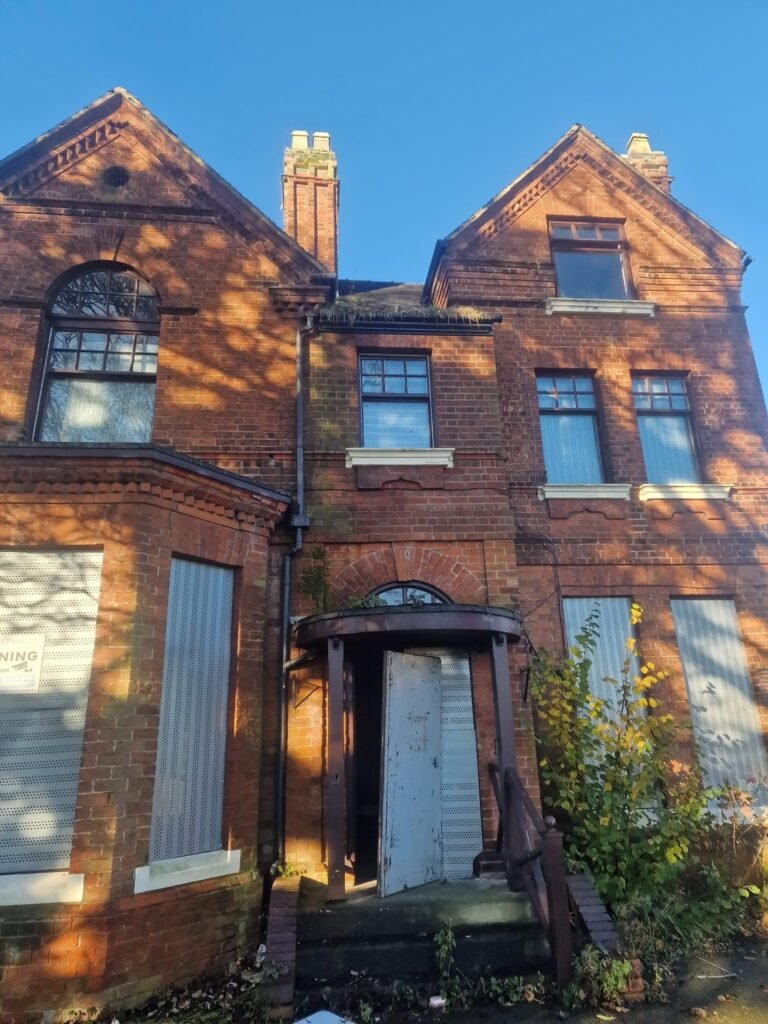
In the United Kingdom, understanding the types of asbestos reports is crucial for ensuring safety and compliance with regulations. There are primarily three types of asbestos reports: Management Surveys, Refurbishment/Demolition Surveys, and Re-inspection Surveys. Each type serves a distinct purpose and is required under different circumstances.
A Management Survey is typically the most common type of asbestos report. Its primary purpose is to manage asbestos-containing materials (ACMs) during the normal occupation and use of a building. This survey aims to locate the presence and assess the condition of ACMs that could be disturbed or damaged during everyday activities, maintenance, and installation works. The Management Survey is essential for helping building managers and owners comply with their legal obligations under the Control of Asbestos Regulations 2012.
In contrast, a Refurbishment/Demolition Survey is required before any refurbishment or demolition work is undertaken. This type of asbestos report is more intrusive and comprehensive compared to a Management Survey. The survey aims to identify all ACMs in the area where the refurbishment or demolition work will take place. This ensures that appropriate measures can be taken to prevent the release of asbestos fibers during the construction activities. It is a critical step to protect workers and the public from potential asbestos exposure.
Lastly, the Re-inspection Survey is conducted periodically to monitor the condition of previously identified ACMs. This survey is essential for ensuring that ACMs remain in a safe state and that any deterioration or damage is promptly managed. The frequency of re-inspection surveys is determined based on the condition and location of the ACMs, as well as the recommendations made in the initial Management Survey. Regular re-inspection helps in maintaining ongoing compliance and safety.
Each type of asbestos report plays a vital role in managing asbestos risks in different scenarios. By understanding the specific purposes and requirements of these surveys, property owners and managers can make informed decisions to ensure health and safety compliance.
Asbestos reports are crucial in numerous scenarios to ensure compliance with legal requirements and to safeguard public health. In the UK, specific regulations mandate the need for asbestos surveys in various situations, particularly during property transactions, refurbishments, demolitions, or when asbestos-containing materials (ACMs) are suspected.
One of the primary circumstances necessitating an asbestos report is during property transactions. When buying or selling a property, especially older buildings, it is imperative to identify any potential asbestos presence to avoid future health risks and financial liabilities. The Control of Asbestos Regulations 2012 (CAR 2012) stipulates that property owners must manage the risk from ACMs, making asbestos surveys essential during transactions to inform all parties involved.
Refurbishments and demolitions are other critical scenarios requiring asbestos reports. Before any refurbishment or demolition work can commence, an asbestos refurbishment and demolition survey must be conducted to identify and manage asbestos risks effectively. This requirement is outlined under Regulation 5 of CAR 2012, which mandates that employers must not undertake any work which exposes or is liable to expose employees to asbestos unless they have carried out an appropriate assessment.
Additionally, if ACMs are suspected in a building, an asbestos management survey is necessary to identify and assess the risk. The survey helps in creating a management plan to prevent accidental disturbance of asbestos during regular building activities. This requirement is also part of the CAR 2012, emphasizing the responsibility of duty holders to maintain and review the condition of ACMs in their properties.
In summary, asbestos reports are indispensable in various scenarios to comply with UK regulations and ensure safety. Whether during property transactions, refurbishments, demolitions, or when ACMs are suspected, obtaining an asbestos report is a legal obligation that helps in managing and mitigating asbestos-related risks effectively.
Conducting an asbestos survey is a meticulous process that involves several key steps to ensure the accurate identification and management of asbestos-containing materials (ACMs). The procedure begins with an initial consultation, where the scope of the survey is determined based on the specific needs of the property owner. This consultation helps in understanding the building’s history, usage, and any previous asbestos-related issues.
The next phase involves a comprehensive site inspection conducted by certified asbestos surveyors. These professionals are trained to identify potential ACMs within the building. During the inspection, surveyors meticulously examine various areas, including inaccessible spaces, to ensure no potential asbestos materials are overlooked. The safety protocols during this stage are stringent, ensuring both the surveyors’ and occupants’ safety.
Following the inspection, the surveyors collect samples of suspected ACMs. These samples are carefully taken to avoid any release of asbestos fibers into the air. Each sample is labeled and documented accurately before being sent to an accredited laboratory for analysis. The laboratory analysis involves sophisticated techniques such as polarised light microscopy (PLM) or transmission electron microscopy (TEM) to determine the presence and concentration of asbestos in the samples.
Once the laboratory analysis is complete, the surveyors compile the findings into a detailed asbestos report. This final report includes the locations of identified ACMs, their condition, and recommendations for managing or removing the asbestos materials safely. The report is invaluable for property owners, guiding them in making informed decisions about asbestos management and ensuring compliance with health and safety regulations.
Throughout the entire process, adherence to safety protocols is paramount. Certified asbestos surveyors follow strict guidelines to minimize any risk of asbestos exposure. This thorough and methodical approach ensures that the asbestos survey is both accurate and effective, providing essential information needed for the safe management of asbestos in buildings.
An asbestos report is a critical document that provides detailed information about the presence and condition of asbestos-containing materials (ACMs) within a property. Understanding asbestos report findings is essential for property owners and managers to ensure the safety of occupants and compliance with regulatory requirements. These reports typically include several key sections that should be carefully reviewed.
Firstly, it is important to familiarize oneself with common terms and metrics used in asbestos reports. Terms such as “asbestos-containing materials (ACMs),” “friable,” and “non-friable” are frequently used. ACMs refer to materials that contain asbestos fibers, while “friable” describes materials that can easily crumble and release asbestos fibers into the air, posing a higher risk. “Non-friable” materials are more stable and less likely to release fibers unless disturbed.
The findings section of the report will detail the location, type, and condition of any ACMs found. The condition is often categorized as good, fair, or poor. A material in good condition may not pose an immediate risk but should be monitored regularly. Conversely, materials in poor condition may require immediate attention or removal. The report may also include risk assessments indicating the likelihood of fiber release and potential exposure risks to occupants.
If asbestos is found, property owners or managers should take specific actions based on the report’s findings. For materials in good condition, routine monitoring and maintenance to prevent disturbance may be sufficient. For deteriorating materials, professional remediation or removal by licensed asbestos contractors is necessary to mitigate risks. It is crucial to follow all recommended safety protocols and comply with local regulations to avoid potential health hazards and legal liabilities.
Effective management of asbestos risks involves regular inspections, proper maintenance, and clear communication with all stakeholders. Property owners should keep detailed records of asbestos reports and any actions taken. Training for staff members on how to handle ACMs safely can further reduce risks. In some cases, encapsulation or enclosure of ACMs may be a viable alternative to removal, providing a safer environment without the need for extensive demolition work.
Understanding the cost structure of asbestos reports in the UK is crucial for property owners, managers, and developers. The expense associated with obtaining an asbestos report can vary significantly based on several factors. Primarily, the type of asbestos report required plays a pivotal role in determining the cost. There are generally three types of asbestos surveys: management surveys, refurbishment and demolition surveys, and re-inspection surveys. Each type addresses different needs and consequently varies in price.
The size and complexity of the building being surveyed is another essential factor influencing the cost. Larger buildings or those with intricate layouts typically require more time and resources to inspect thoroughly, leading to higher fees. Additionally, buildings with a history of extensive renovations or those constructed during periods when asbestos use was prevalent may necessitate more detailed examinations, further impacting the overall cost.
Geographical location within the UK also affects the cost of asbestos reports. Prices can vary between regions due to differences in demand, local regulations, and the availability of qualified surveyors. For instance, urban areas with a higher concentration of older buildings might see increased costs compared to rural regions.
On average, the cost of a standard management asbestos survey in the UK ranges from £200 to £500. Refurbishment and demolition surveys, which are more comprehensive, can range from £300 to £800. Re-inspection surveys, typically conducted to ensure compliance and safety after initial assessments, usually cost between £100 and £300. It’s important to note these figures are averages and can fluctuate based on the aforementioned factors.
In addition to the base costs, there may be additional fees to consider. These can include charges for laboratory testing of samples, expedited service requests, and travel expenses for surveyors. Property owners should ensure they receive a detailed quote outlining all potential costs to avoid unexpected expenses.
Overall, the cost of asbestos reports in the UK is influenced by multiple variables, and understanding these can help in budgeting and planning for necessary asbestos management and compliance measures.
When it comes to choosing a qualified asbestos surveyor, several critical factors must be considered to ensure the safety and accuracy of the asbestos report. Firstly, certification is paramount. In the UK, asbestos surveyors should be accredited by recognized professional bodies such as the United Kingdom Accreditation Service (UKAS) or the Asbestos Testing and Consultancy Association (ATaC). These accreditations guarantee that the surveyor adheres to stringent standards and possesses the necessary expertise to conduct thorough asbestos surveys.
Experience is another crucial criterion. A surveyor with a track record of handling diverse asbestos-related projects is more likely to deliver reliable and comprehensive assessments. It is advisable to inquire about the surveyor’s experience in similar properties or situations to ensure they have the relevant background to address your specific needs. Additionally, seasoned surveyors are often more adept at navigating unexpected challenges that may arise during the survey process.
Customer reviews and testimonials offer valuable insights into a surveyor’s reputation and reliability. Positive feedback from previous clients can be a strong indicator of the surveyor’s competence and professionalism. Conversely, negative reviews or complaints may signal potential issues. It is also beneficial to request references or case studies to gain a more detailed understanding of the surveyor’s performance and client satisfaction.
In addition to certifications and experience, consider whether the surveyor participates in ongoing professional development and training. The field of asbestos surveying is continually evolving, with new regulations and best practices emerging regularly. A surveyor committed to staying updated with the latest developments is more likely to provide accurate and compliant services.
Lastly, evaluate the surveyor’s communication skills and customer service. Clear and transparent communication is essential for understanding the survey process, results, and any recommended actions. A surveyor who is approachable and responsive can significantly enhance the overall experience, ensuring that you are well-informed and confident in their findings.
Understanding the significance of asbestos reports is paramount for ensuring health and safety in both residential and commercial environments. These reports serve as essential tools for identifying the presence of asbestos-containing materials, thereby mitigating the risks associated with asbestos exposure. As highlighted throughout this blog post, the primary uses of asbestos reports range from safeguarding public health to maintaining legal compliance and facilitating effective property management.
From a health perspective, asbestos reports are crucial in preventing asbestos-related diseases, which can have serious, long-term consequences. The detailed assessment provided by these reports enables property owners and managers to implement appropriate control measures, thus minimizing exposure risks for occupants and workers. Furthermore, adherence to asbestos regulations is not merely a legal obligation but a moral responsibility. Compliance with UK asbestos regulations helps avoid substantial fines and legal ramifications, ensuring that properties meet the required safety standards.
In addition to health and legal considerations, asbestos reports are invaluable for property management. They inform critical decisions regarding maintenance, renovations, and demolitions, allowing for the safe management of asbestos-containing materials. Accurate and comprehensive reports enable property owners to plan interventions effectively, avoiding unnecessary disruptions and additional costs.
Given the multifaceted importance of asbestos reports, it is imperative for property owners, managers, and stakeholders to prioritize obtaining these assessments. Proactive steps in commissioning asbestos surveys and reports not only safeguard health and ensure compliance but also enhance the overall management and value of properties. In light of these compelling reasons, investing in asbestos reports is a prudent and necessary action for maintaining safe and compliant environments.
Asbestos in Homes
Learn about the risks of asbestos, a hazardous material commonly found in homes. This guide covers the health dangers of asbestos exposure, including asbestosis, lung cancer, and mesothelioma, and provides essential information on proper handling, safety precautions, and professional asbestos removal to safeguard your health and home
What is a Asbestos Surveys
Learn about the different types of asbestos surveys conducted in the UK, including asbestos management surveys, asbestos refurbishment and demolition surveys, and asbestos reinspection surveys. Find out why these surveys are crucial for identifying and managing the presence of asbestos in buildings, and how they ensure the safety.
What is a Pre-Demolition Survey?
A pre-demolition survey is an essential step in any demolition project. By conducting a thorough assessment of the building or structure, potential hazards can be identified and appropriate measures can be taken to ensure a safe and efficient demolition
Refurbishment Survey
A refurbishment survey is a critical step in the refurbishment process in the UK. It helps to identify and manage the risks associated with asbestos-containing materials, ensuring the safety of workers and occupants. By engaging a qualified surveyor to conduct the survey, duty holders
Asbestos Removal
Total Asbestos is a leading asbestos removal company in the UK, offering comprehensive services including surveys, testing, and removal. With a focus on safety, regulatory compliance, and cutting-edge technology, they manage projects across residential, commercial, industrial, and public sectors.
Types of Asbestos
Asbestos has been included in many materials in the last 150 years. Three common types of asbestos can be found in buildings: Crocidolite (Blue Asbestos), Amosite (Brown Asbestos), Chrysotile (White Asbestos)
Managing Asbestos
The strategy of the HSE is to ensure that those involved in the repair, removal or disturbance of asbestos containing materials (ACMs), such as insulation coatings or insulation boards, are licensed & competent
What is Asbestos ?
Asbestos was commonly used as a construction material in the UK between the 1950s and 1980s in particular. If your home was built between these years, chances are that you are living with Asbestos
Control Of Asbestos Regulations 2012
The control of asbestos regulation 2012 came into force on 6 April 2012. In practice the changes are fairly limited. They mean that some types of non-licensed work with asbestos now have additional requirements, i.e. notification of work, medical surveillance and record keeping.
Asbestos In The Workplace
Learn about asbestos, its types, and the health risks associated with exposure. Understand the importance of managing asbestos in the workplace, the UK’s Control of Asbestos Regulations 2012, and the role of the Health and Safety Executive (HSE) in enforcing these regulations. Discover the safety measures necessary to protect workers
Brownfield Land Remediation Contractors
We have tackled some of the most complex remediation projects undertaken in the United Kingdom, surpassing industry standards. Our diverse range of experience and expertise sets us apart and we continually deliver to the highest standards
Total Asbestos Consultancy
Total Asbestos stands as a premier provider of comprehensive asbestos consultancy services across the UK. Renowned for their expertise and unwavering commitment to safety, Total Asbestos offers a wide array of services designed to address the multifaceted challenges posed by asbestos.
Let's Work Together
Please complete the form below and someone from the Total team will be in touch to discuss your asbestos requirements For urgent needs, our customer support team is available through various channels. You can reach us via phone during business hours, or through our dedicated email support. We are committed to providing timely assistance and ensuring your asbestos concerns are addressed promptly and professionally.


